Hot-dog seller, war lord - and the man who dared to challenge Putin
Once little more than a useful tool for the Kremlin, former convict, Yevgeny Prigozhin, has moved into another league, turning against his old ally to lead his Wagner group into rebellion.
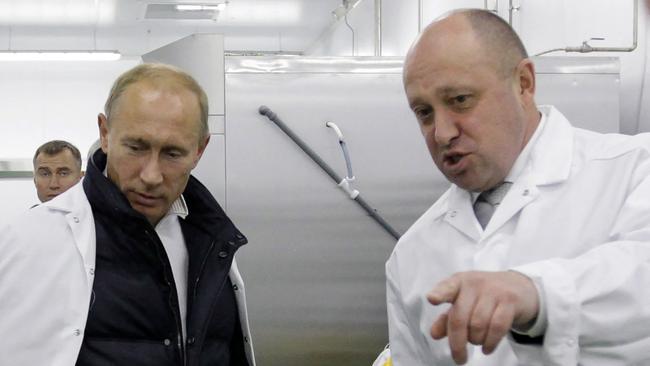
Dressed in a white bow tie and black coat, Yevgeny Prigozhin hovers in the background, every inch the obsequious maitre d’, oozing supplication as President Putin dines with George W Bush at his luxurious St Petersburg restaurant.
It is 2006, and the man who will one day launch an all-out rebellion against Putin’s rule is still clawing his way into the upper echelons of power: growing closer all the time to the country’s leader.
Now, 17 years later, Prigozhin, 62, is the Kremlin’s enemy No 1, hunted and reviled after commanding his fighters in the Wagner paramilitary group to launch a mutiny against the armed forces - couched as a “march for justice” to protest against corruption in the defence establishment.
Despite Prigozhin agreeing last night (Saturday) to stand the Wagner group down and return to Ukraine, there can be no rapprochement between the two men. So, in flames, ends a partnership that has been a defining element of Putin’s rule.
So, in flames, ends a partnership between two men that has been a defining element of Putin’s rule.
They were a perfectly matched duo: the petty criminal turned oligarch and the KGB officer who became president. Each was formed on the hardscrabble streets of Soviet-era Leningrad, when delinquency and desperation were the norm. And each saw something in the other they could use to their advantage.
For Putin, Prigozhin was an unscrupulous criminal ally, willing to do anything for power: in command of a private, deniable army to be deployed as a foreign policy tool of the Kremlin, and then as cheap lives to be thrown into the meat grinder in Bakhmut.
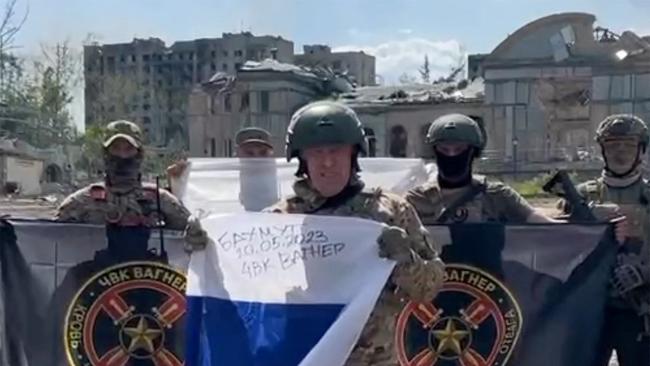
Putin, in turn, has made Prigozhin rich, turning him from a convicted thief and hot-dog salesman into one of the most powerful people in the country.
After months of tensions - of Prigozhin’s foul-mouthed, spitting rants against Russia’s military establishment as his troops died like flies in Ukraine - that balance collapsed, in truly spectacular fashion.
It began decades ago, when Prigozhin’s talents for cruelty and malice were being forged on the streets of what is now St Petersburg. As teenagers, he and his friends were involved in a number of robberies and assaults. Court documents relate how, one evening in 1980, they attacked a woman in the street. Prigozhin choked her until she lost consciousness so they could steal her gold earrings.
Prigozhin was eventually arrested and sentenced to 13 years in prison. He was released in 1990, just as the Soviet Union was beginning to unravel, and went into business as a hot-dog salesman.
Soon the roubles were piling up in his mother’s kitchen faster than he could count them. He acquired a stake in a chain of supermarkets and opened a restaurant, hiring a British hotel administrator who had previously worked at the Savoy in London to manage it. It became a magnet for pop stars and businessmen.
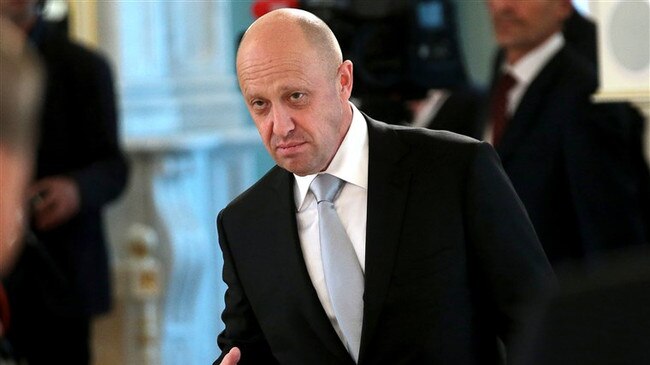
“They were tired of eating cutlets with vodka,” Prigozhin told a Russian society magazine. The city’s former mayor, Anatoly Sobchak, was a regular. So was his deputy, Putin, a KGB officer. The two men grew close, each seeing the wealth of possibilities in the other.
“He saw how I built my business starting from a kiosk,” Prigozhin told another magazine. “He saw how I was not above serving a plate.”
The relationship brought dividends. Prigozhin became known as “Putin’s chef”, his Concord company winning big catering contracts from the Russian state. The business was soon feeding schoolchildren and soldiers all over Russia.
He became fantastically rich, with palaces and a private jet. Despite his habit of secrecy, a few details have emerged about his private life from photographs posted a few years ago by his two grown children on Instagram. One showed his son, Pavel, walking naked on the deck of the family’s 115ft yacht. Others displayed a powder-blue Lincoln Continental, supposedly Prigozhin’s favourite car.
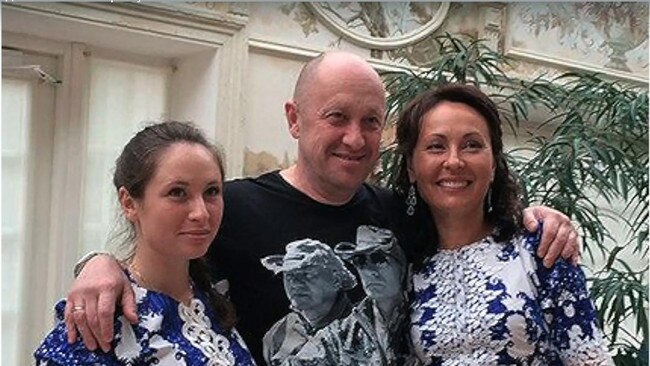
After years of catering for the military, Prigozhin was reported to have pitched a plan to Putin about how to promote Russian interests around the world without implicating the Kremlin. Wagner was formed in 2014 with the co-operation of the GRU, the Russian military intelligence service, which provided a provincial training site near its own base, as well as equipment. The military spy chiefs apparently had no choice: the operation had been approved by “the boss” - Putin.
While Prigozhin flitted around in his jet, day-to-day leadership of this private army was left to Dmitry Utkin, a neo-Nazi and former officer in the GRU and “Spetsnaz” special forces. The mercenary group took its name from Utkin’s call sign, “W” for Wagner, the German composer, a favourite of Utkin - and Hitler. The mercenaries refer to their army as an “orchestra”; they are its “musicians”.
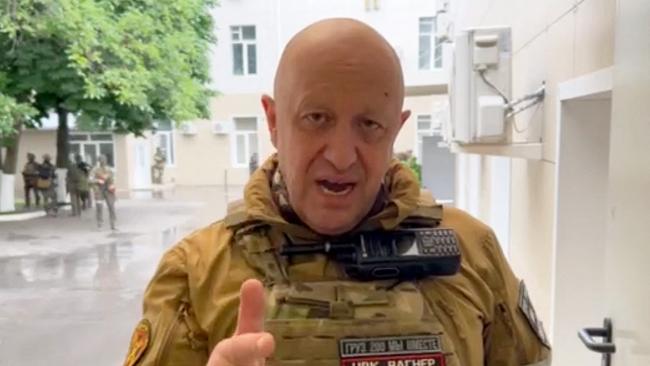
One of their first gigs was the annexation of Crimea in 2014, when the Kremlin left the world guessing whether the figures in combat fatigues with no markings who appeared on the peninsula’s streets - the “little green men” - were Russian.
Officially, Wagner did not exist: private military companies are banned in Russia. But that did not stop Prigozhin from sending combatants into the eastern Donbas region of Ukraine later that year to foment separatism. Wagner’s next task was to set up in Syria in support of its blood-drenched dictator, Bashar al-Assad. Utkin was reported to have ordered his men to film a captive being beaten with a sledgehammer to inspire terror in the ranks of Assad’s enemies.
Prigozhin then turned his skills to waging asymmetric warfare against the West. He set up an internet “troll farm” in St Petersburg that was accused of trying to magnify political divisions in America, encouraging voters to support Donald Trump in the 2016 US presidential election. This resulted in 2018 in the US imposing sanctions on various Prigozhin companies and indicting him for “meddling” in the election. By then, Prigozhin had taken his army - and talent for disinformation - to Africa. In Sudan the organisation advised the strongman Omar al-Bashir, who had been charged with multiple counts of genocide, on how to operate a social media campaign to discredit civilian protesters.
In 2019 Wagner deployed to Mozambique to help battle insurgents but quickly withdrew after humiliating losses. “Wagner frequently oversell their capabilities,” a western defence source says. “Repressive regimes make Faustian bargains with them, using their nations’ natural wealth to buy security but finding themselves trapped with an expensive, unreliable and untrustworthy partner.”
A Russian hearts and minds campaign in the Central African Republic has included screenings of Tourist, a propaganda film glorifying the “Wagner men”. A statue appeared in the capital, Bangui, showing Russian soldiers defending women and children. Besides executions of civilians, the Wagner men are accused of widespread abuses. In May 2022 they stormed a maternity hospital in Bangui, raping health workers and new mothers.
Atrocities have come to light wherever Wagner has operated. Three Russian journalists investigating Wagner’s activities in the Central African Republic were murdered in 2018. Prigozhin has denied any involvement.
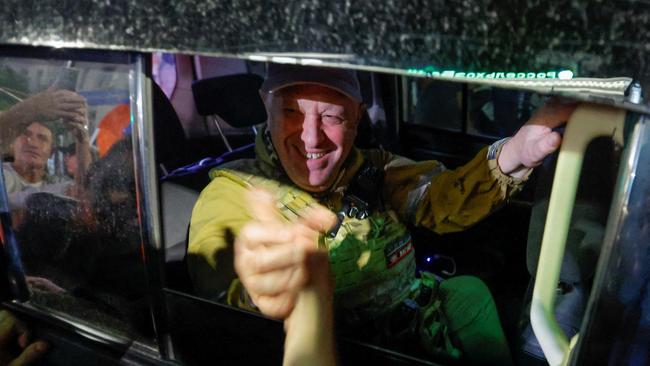
In January the UN accused Wagner of war crimes against civilians in Mali, whose government has engaged the mercenaries to help win a long-running war against jihadists following the withdrawal of French forces early last year. The UN recorded an attack where hundreds were summarily executed after being forced to dig their own graves.
By last year, it was Ukraine’s turn. In September, a secretly recorded film showed Prigozhin standing in a prison courtyard, wearing a beige anorak, attempting to recruit prisoners to fight in Putin’s “special operation”. His pitch was clear: fight for six months and receive a pardon. Run away and you’ll be put in front of a firing squad. “You have five minutes to make up your mind,” he told them. Since then, Wagner has managed to recruit more than 20,000 convicts.
Thousands from the “penal battalion” were slaughtered within days - or even hours - of arriving at the front. Many others have been executed by their own side.
“They would round up those who did not want to fight and shoot them in front of newcomers,” says Andrei Medvedev, a Wagner recruit now seeking asylum in Norway. “They buried them right in the trenches that were dug by the trainees.”
Nevertheless these “human wave” attacks appear to have made a difference. After months of slaughter, Prigozhin’s troops won the eastern Ukrainian city of Bakhmut, one of the few Russian successes of the war. That gave Prigozhin the standing to double down on his criticism of the Russian ministry of defence and “horrendous military bureaucracy” that he said had prevented Wagner from capturing the city more quickly.
Prigozhin has made clear he has no qualms about his men’s extreme violence. “A dog’s death for a dog” is how he reacted to a video broadcast online of Wagner troops beating one of their comrades to death with a sledgehammer. The victim had been captured by the Ukrainians and sent back in a prisoner exchange.
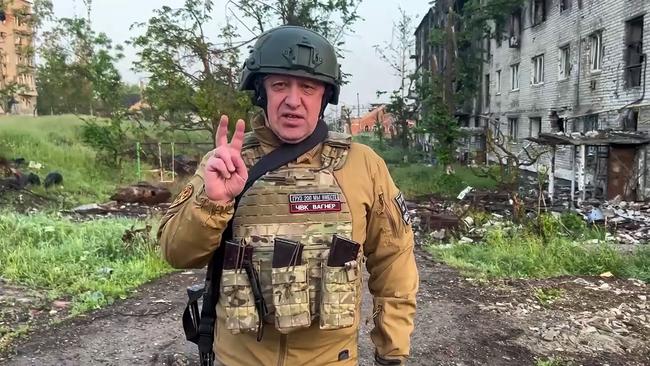
Through his tub-thumping rants online he became a kind of folk hero to a certain type of Russian hard line nationalist: his swagger and denunciations of corrupt generals and military leaders was catnip to war bloggers disappointed at the army’s poor showing in Ukraine.
He is one of the country’s richest oligarchs. But that has not stopped him from ranting on social media about rich Russians, “those who live abroad, raise children abroad, proclaim high values but nevertheless support the West”.
It appears to go down well with the masses, like his blunt-speaking appeal to the convicts. “He’s one of us,” a recruit was quoted as saying, noting the Wagner boss had served nine years in prison.
Once little more than a useful tool for the Kremlin, Prigozhin had moved into another league - an increasingly powerful and independent figure who appears to relish life in the spotlight. His influence and ambition became unlimited: to free rapists and murderers to fight in Ukraine he had to pull rank over various powerful groups that answer only to Putin, not least the FSB, the secret police. Fears that Prigozhin would make a move to overthrow Putin have been building for months in the Russian corridors of power. “There is an atmosphere of deep foreboding in Moscow,” an intelligence source said earlier this year.
In recent months, Putin seemed to sense the threat posed by his “chef”. He appointed Valery Gerasimov, a Prigozhin enemy, as commander of the operation in Ukraine. In February the Kremlin gave the go-ahead for the Russian energy giant Gazprom to start a private security force.
Prigozhin, for his part, has embraced the sledgehammer as the chief symbol in his battle for power. A mass-produced version with a wooden shaft and iron head engraved with “Wagner” has gone on sale across Russia.
In another film he addresses “traitors” and wealthy Russians abroad: “The Wagner sledgehammer will be waiting for you.” A Russian friend who fled to the US says is “a message not just to us but anyone who stands in his way”. Yesterday (Saturday) that momentarily came to include his former dinner guest: Vladimir Putin.
The Times

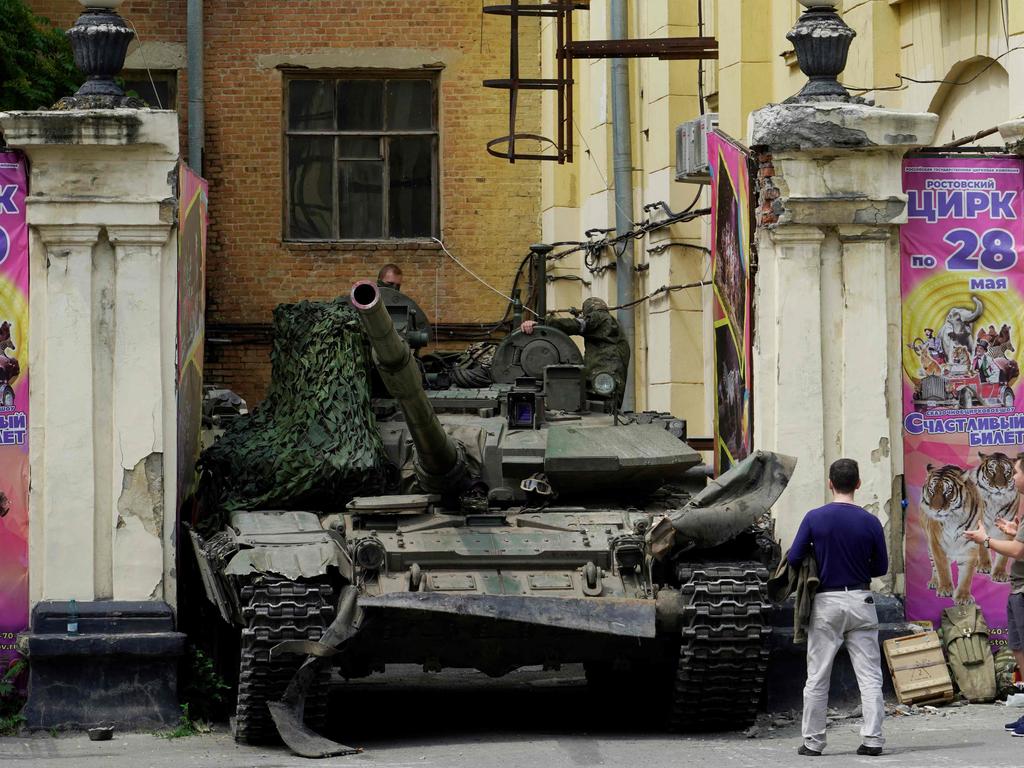
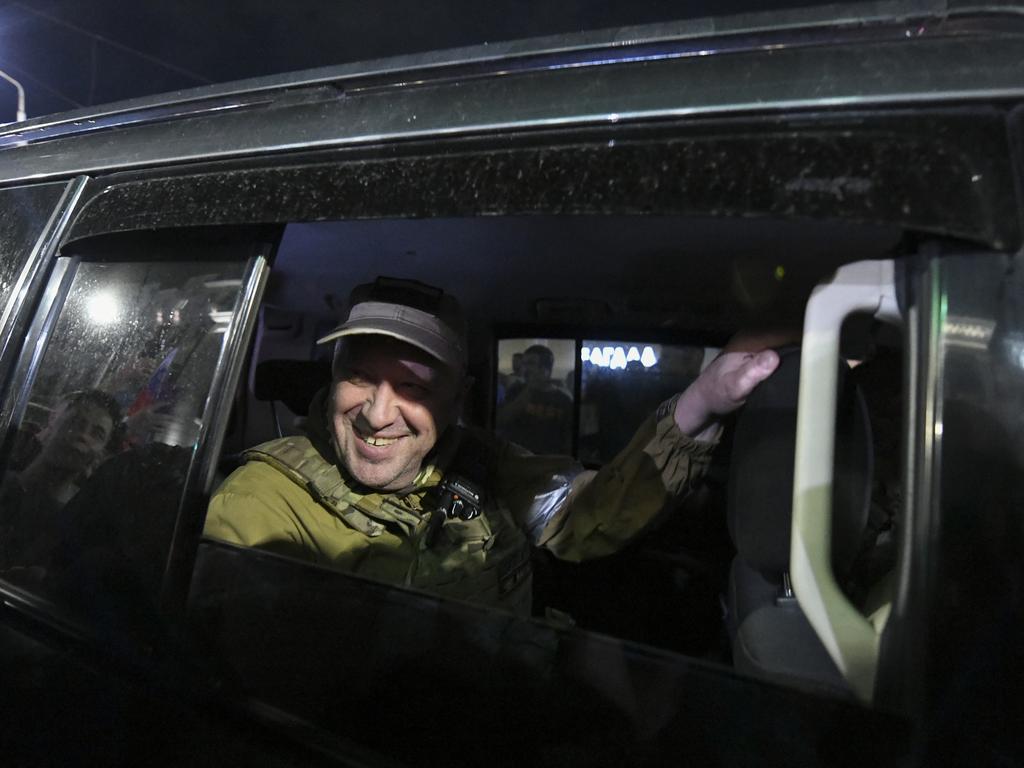
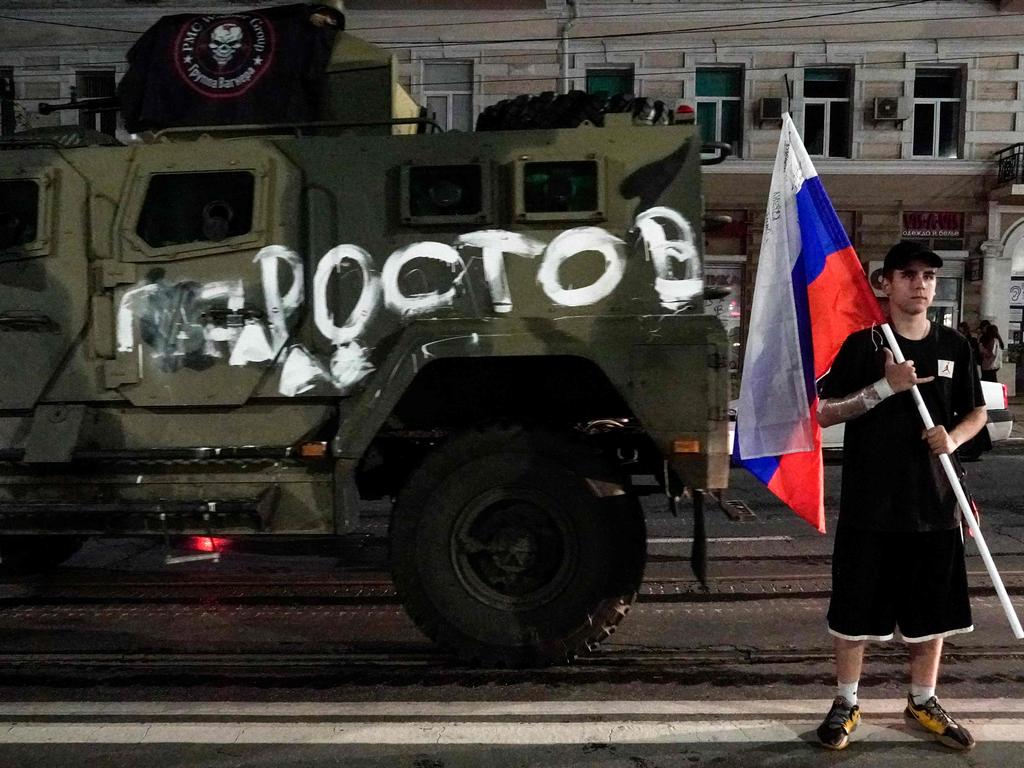
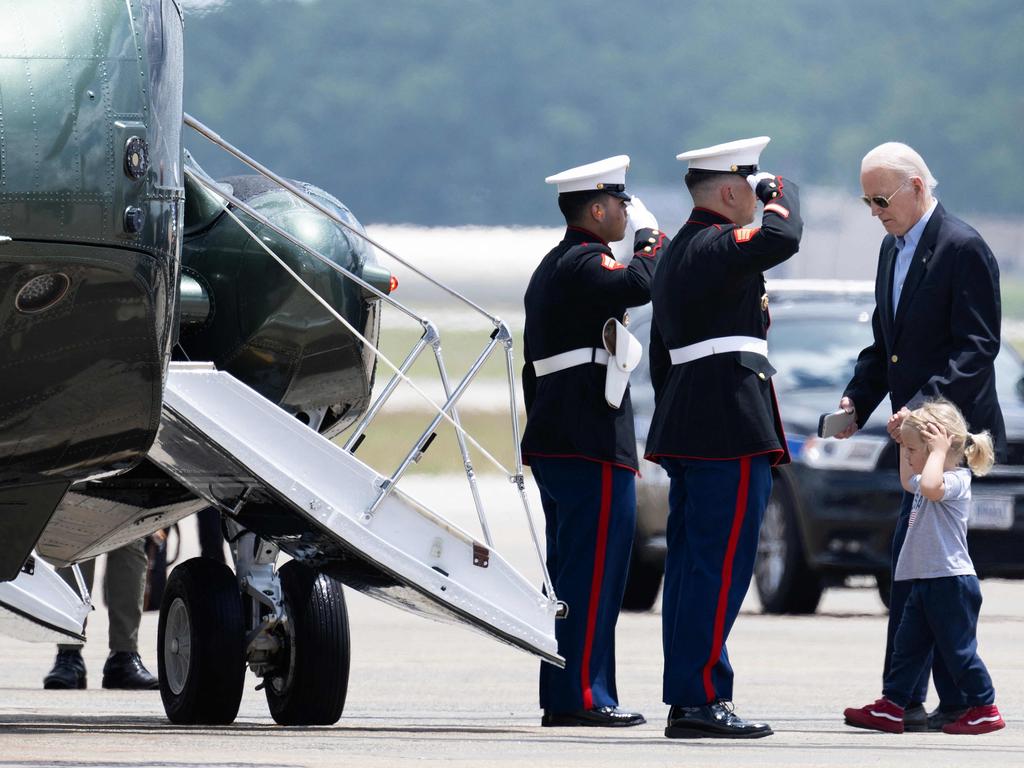


To join the conversation, please log in. Don't have an account? Register
Join the conversation, you are commenting as Logout